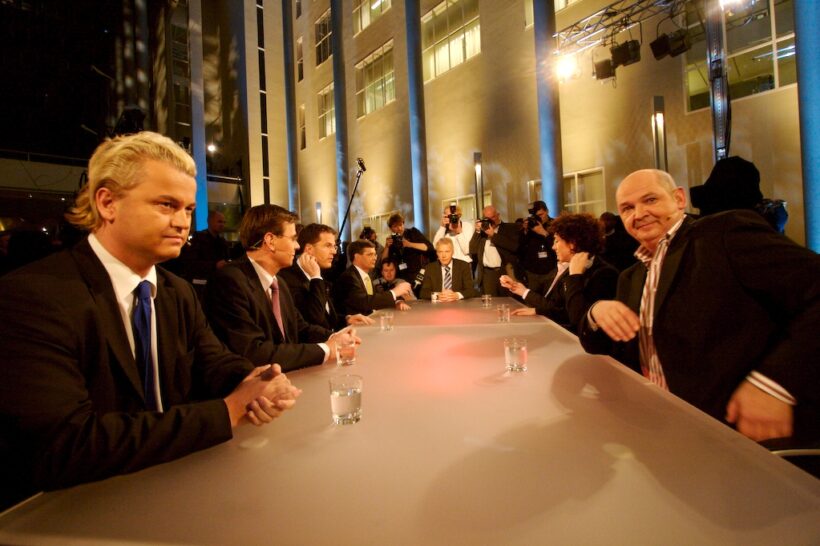In the Netherlands, the PVV (Freedom Party), led by controversial politician Geert Wilders, often described as “far-right” and “populist”, won about 37 of the 150 seats in the Dutch parliament. While talks have started to form the new government, Wilders and his party are now in a leading position. Predictably, much is being written now about the rise of “populism” in Europe, while Western discourses try to link it to far-right Nazi-Fascism.
Whether one likes the “populist” wave or not, this being an umbrella term for a variety of movements, it would be simply inaccurate to equate all such groups with Fascism in general. The supposed connection to Russia in turn only appears “sinister”, thanks to a wave of Russophobia, if one suffers from memory loss: as recently as 2021, the (now gone) Nord Stream 2 German-Russian pipelines project was being completed to deliver Russian gas directly to Western Europe. It had been opposed from the very start by Washington, while Berlin resisted American pressures all the way to almost completion – and then pipelines got blown up in a sabotage explosion, just as US President Joe Biden himself on February 7 had promised would happen, when he said: “If Russia invades (…) there will be no longer a Nord Stream 2. We will bring an end to it.”
According to Pulitzer Prize-winning journalist Seymour Hersh, the sabotage was indeed carried out by Washington. However, thus far, the only voices that vehemently demand an active investigation about such an act of terrorism come from the populist camp, such as the Die Linke and the Alternative für Deutschland (AfD) political parties in Germany. It is no wonder then that populism is on the rise in the continent.
Notwithstanding any valid criticism one may have of the current Russian military campaign in Ukraine, the roots of today’s conflict lie on this energy angle and American interests – as much as they also lie on US geopolitical goals pertaining to “encircling” Russia and to NATO’s enlargement for the sake of maintaining unipolary.
This month Moldova, a country which is trying to join the European Union (EU), banned a “pro-Russian” party (the Chance Party) from taking part in local elections, two days before the vote, on the basis of “national security” concerns. The measure is in line with the latest European trend, which can only be described as Neo-Mccarthyism: in France, Marine Le Pen, who vowed to pull Paris out of NATO’s military command last year, was questioned for four hours, on June, during what was described as a witch trial, and her Rassemblement National party was described as a “communication channel” for Russia by a report published by the French government.
The same month, Poland’s President Andrzej Duda signed a law allowing Warsaw to conduct political repression against the opposition, the justification being, of course, “to investigate Russian influence on Polish politics”. The commission created for that purpose can ban people from public office for a decade. Such measures, as I wrote, mirror post-Maidan Ukraine’s own anti-Russian initiatives pertaining to banning vaguely defined “pro-Russian” political parties (at least 11 thus far) and the opposition. The Ukrainian President Volodymyr Zelensky has also been advancing moves to outlaw (Russian) Orthodox communities, something which even the head of the Ukrainian Catholic Church, Archbishop Sviatoslav Shevchuk of Kyiv-Halych, has denounced.
France, particularly, had always boasted of being the land of demonstrations, but that has changed. Last month, the country’s Interior Ministry banned all pro-Palestinian rallies nation-wide. Violent clashes between police and defiant protesters ensued, and organizing such demonstrations can now lead to arrest. Similarly, protests have also been banned or restricted in Germany, the United Kingdom, Switzerland, Hungary, Poland, and Austria, among other European nations. Esther Major, Amnesty International’s Deputy Director for Research in Europe voiced the organization’s concern, stating, on October 20, that “in many European countries, the authorities are unlawfully restricting the right to protest (…) In some cases, protests have been banned altogether.”
According to Julia Hall, Amnesty International’s expert on counter-terrorism and human rights (in Europe), “what people can say and do is narrowing by the day”, with France proposing to “criminalize people who criticize Israel”, which is “something new”. She adds that “free speech in Europe has been narrowed in record time. It is leaving victims without any voices. I do not think this will be a one-off.” The United Nations (UN) rapporteur Clement Voule has also voiced his concern about such “disproportionate and arbitrary” blanket bans on protests and the like setting “a very worrying precedent that could have a great impact on the exercise of our fundamental rights and freedoms” because in times of crisis people should have “space to raise their voices, grievances and solidarity, and calls for peace, justice and security.”
All such measures clearly violate human rights in Europe in Europe’s own terms, in accordance with article 11 of the European convention on human rights, by stigmatizing minorities such as Muslims and others, and by violating the freedom of peaceful assembly and the freedom of expression. The thing is this trend has not started now with the issue of Palestine at all: in fact, this year Germany banned Russian and Soviet flags during its “World War II commemorations” on Victory Day, this being the very day when the Soviet Union defeated Nazi Germany.
While European Establishment voices may try to demonize populism, we are witnessing in fact the “Maidanization” of the continent, with rising anti-Russian neo-McCarthyism, talks about banning political parties and demonstrations, the Western mainstreamization of the far-right and even Nazism (as long as it is not “pro-Russian”) plus Europe agreeing with Kyiv on “no Russian minority” in Ukraine. Rather than expecting Ukraine to adapt to European norms and values, it would seem Europe is changing in such a way that post-Maidan Ukraine will just feel at home if its accession ever materializes.
Source: InfoBrics
Uriel Irigaray Araujo, PhD candidate (UnB), journalist and researcher with a focus on international and ethnic conflicts










